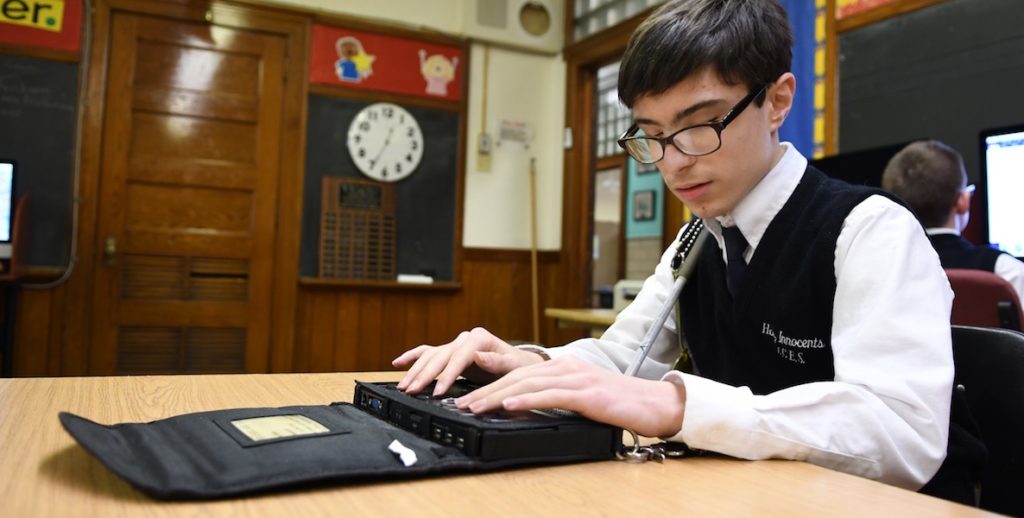
Blind since birth, Simon started attending monthly meetings at his local chapter of the National Federation of the Blind when he was 9. The following year, he joined NFB as the youngest member of its annual Washington Seminar, a trip they make to the nation’s capital to advocate for a legislative agenda benefitting blind Americans. He’s returned every year since, including earlier this month, when he met with Congresspeople—including the district representative for his hometown of Drexel Hill, U.S. Rep. Pat Meehan—about legislation to create accessibility guidelines for postsecondary institutions, a tax credit to increase accessibility to assistive technology and a bill called the Marrakesh Treaty that would make exchange of accessible works across national copyright laws.
“Working with your representatives needs to be done by people,” he says. “If people want equality it is their duty to contribute to getting what they need. And that’s what I’m doing. It shows the senators and the congressman that blind people do care, and we do have a voice and we do care how our leaders vote.”
This year, Simon is most excited about the Marrakesh Treaty, supported last year by former President Barack Obama, who said, “The Marrakesh Treaty lays a foundation, in a manner consistent with existing international copyright standards, for further opening up a world of knowledge for persons with print disabilities by improving their access to published works.”
“A lot of people don’t know the full potential of blind people, that we have a voice in society,” he says. “They have a very low idea of what we can do as blind people and I try to change this every day, even if I’m not talking to people that I’m walking around and meeting on the street, just that they’re taking notice of ‘Oh there’s a blind person out on the street, living their daily lives doing their thing.’”
The NFB has reported that millions of blind and print-disabled Americans are excluded from accessing 95 percent of published works. This is because often, if a blind person wants to read a certain book and another country has already translated it to braille, the person can’t access it due to international copyright laws. Instead, they must wait for the book to be brailled in English, and pay high costs for it to be reproduced in America. “It’s a really practical and needed law that needs to be passed,” Simon says.
Simon, an 8th grader at St. Lucy Day School for Children with Visual Impairments in Juniata Park, was born with retinopathy of prematurity, a condition that often causes blindness in infants due to abnormal development of retinal blood vessels in premature babies. His impairment has never stopped him much—he takes voice lessons and is always using technology like other iGeneration kids. When he heads to D.C., Simon hops on a train from 30th Street Station with his mom. “My parents have always been supportive of all the things I’ve wanted to do,” he says. “They are usually just along for the ride.”
Simon works to help other people around him realize the prospects of blind people—just by doing what he does. He says he hopes that by being in public, doing everyday activities, he raises awareness and the expectations society has for him as a person who is blind.
“A lot of people don’t know the full potential of blind people, that we have a voice in society,” he says. “They have a very low idea of what we can do as blind people and I try to change this every day, even if I’m not talking to people that I’m walking around and meeting on the street, just that they’re taking notice of ‘Oh there’s a blind person out on the street, living their daily lives doing their thing.’”
Simon has been accepted to St. Joseph’s Preparatory School and Archbishop John Carroll High School, and will be deciding shortly which school he’ll be attending next year. But he’s set on his future career: He wants to work at Apple to help the advancement of accessible technology.
“They’re the company that’s the most dedicated to accessibility on their products and they’ve always been a company that is a lead supporter of inclusiveness for all,” he says. “People have put low expectations for me and my future and I plan to crush those people who say I can’t do things and I can’t accomplish what I want to accomplish.”

